-
Leading Nature Index science cities in physical sciences: regional centres drive China’s progress
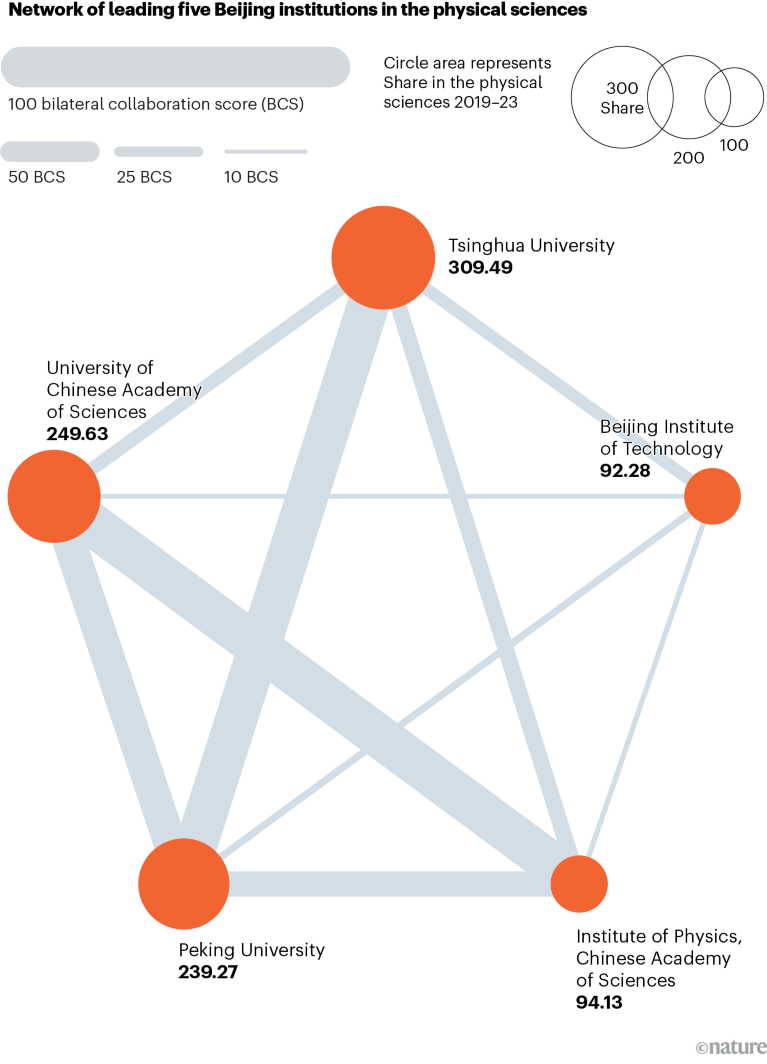
A strengthening research climate has seen Chinese cities rise to take the top three spots in this year’s leading science cities for physical sciences, as the eastern city of Nanjing climbs above both Boston and New York for the first time. Nanjing, China’s 13th largest city by population size according to the country’s 2020 census,…
-
Boston’s dense health-sciences networks help the city to maintain its lead
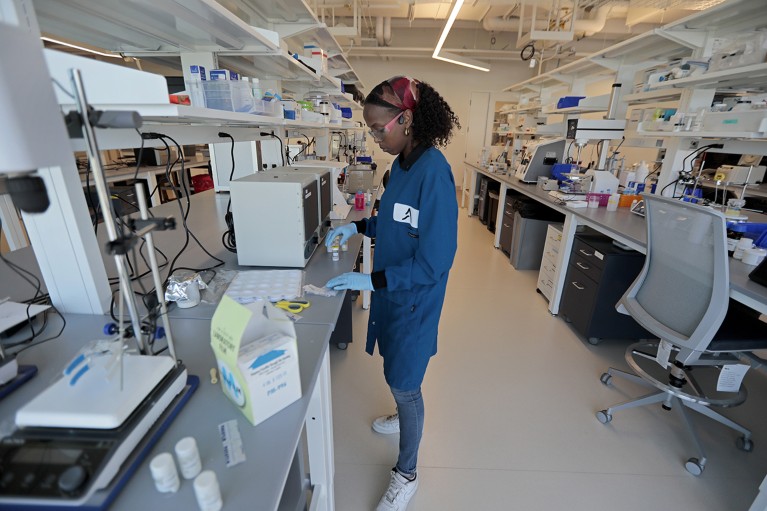
An analytical chemist works in the lab of biotech company Arcaea, which is based in Boston, Massachusetts.Credit: Boston Globe/Getty When a delegation of scientists from Japan recently visited Harvard University in Cambridge, Massachusetts, they asked their hosts a familiar question: what are the secret factors that make the Boston area, which includes Cambridge, such a…
-
Leading Nature Index science cities in Earth and environmental science: Research output gathers pace in China
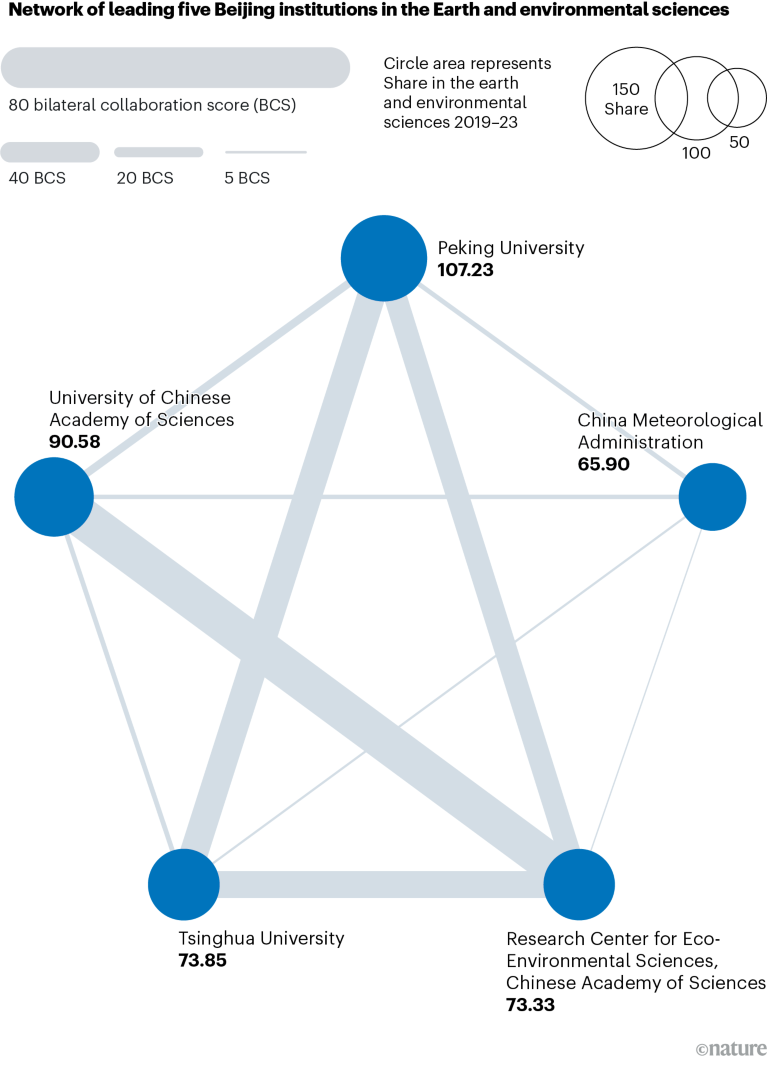
With its continued focus on sustainability and ecological protection, China is cementing itself as a leader in Earth and environmental sciences. Beijing, Nanjing and Guangzhou, the leading three cities in the subject, respectively, have all recorded increases in adjusted Share between 2022 and 2023. Wuhan’s momentum is particularly strong — the city’s adjusted Share in…
-
Computational technologies of the Human Cell Atlas

Single-cell technologies have shattered the fuzzy lenses through which researchers conventionally view biology. Instead of looking at the average behaviour of a swathe of cells, scientists can interrogate genes or other features cell by cell. But the technology also brings challenges: the data are expensive to collect and analyse, and typically force researchers to choose…
-
‘Forever’ chemicals can be destroyed with clever chemistry — now test these techniques outside the lab

In April, the US Environmental Protection Agency declared a standard of ‘close to zero’ levels of certain PFAS substances in drinking water.Credit: Justin Sullivan/Getty A simple chemical bond between carbon and fluorine atoms changed the world — for the better, and then for the worse. Such bonds lie at the heart of per- and polyfluoroalkyl…
-
Half of the top 20 science cities are now in China — and regional city growth is the key

China’s cities are playing a key role in the development of specialist technologies such as solar energy.Credit: Yaorusheng/Getty Many of the patterns evident in the data for this year’s Nature Index Science Cities supplement will be familiar to watchers of global science trends over the past decade. China’s research output in the journals tracked by…
-
Clams use fiber optics to channel sunlight to symbiotic algae
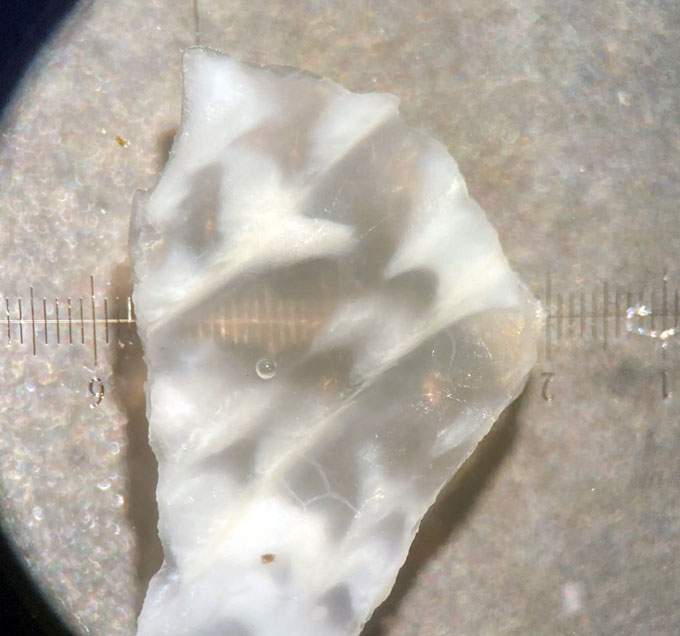
In a discovery that blurs the line between biology and technology, scientists have found that heart-shaped clams use fiber optic–like structures to channel sunlight through their shells in much the same way that telecommunications company use fiber optics to deliver high-speed internet connectivity into homes. This innovation, a first known example of bundled fiber optics…
-
How a silly science prize changed my career
Eleanor Maguire wasn’t too thrilled when she was first offered an Ig Nobel Prize. The neuroscientist at University College London was being honoured for her study showing that London taxi drivers have larger hippocampi in their brains than do people in other professions1. But she worried that accepting the prize would be a disaster for…
-
Countries could use nature to ‘cheat’ on net zero targets, scientists warn
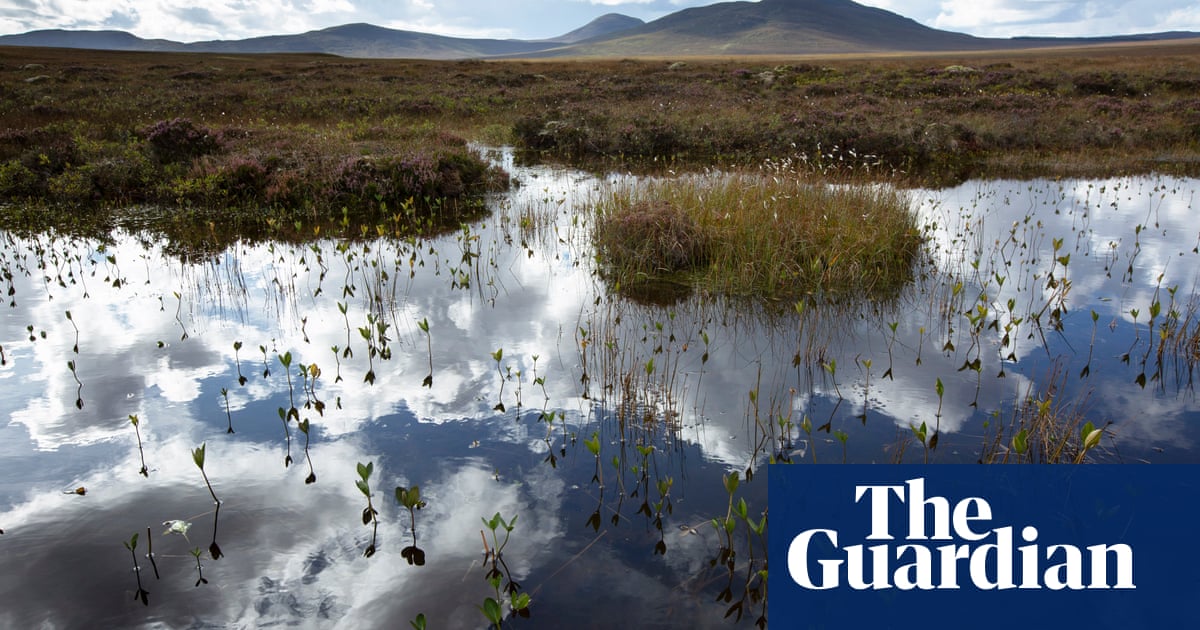
Relying on natural carbon sinks such as forests and oceans to offset continued fossil fuel emissions will not stop global heating, the scientists who developed net zero have warned. Each year, the planet’s oceans, forests, soils and other natural carbon sinks absorb abouthalf of all human emissions, forming part of government plans to limit global…
-
Killer questions at science job interviews and how to ace them

Credit: Getty Nature’s 2024 hiring in science survey This article is the third in a short series discussing the results of Nature’s 2024 global survey of hiring managers in science. The survey, created in partnership with Thinks Insights & Strategy, a research consultancy in London, launched in June and was advertised on nature.com, in Springer…